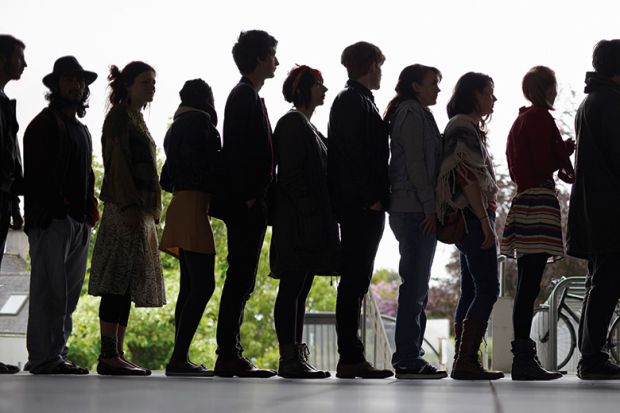Having an end-of-alphabet surname might sometimes feel like a curse for some academics.
Listed last on the faculty website and bottom of the list of authors on scholarly papers, the Zimmermans and Zhangs of academia may often wonder if they might have gained more recognition and success had they been born an Adams or a Bennett.
But those worried about so-called “alphabetical bias” should fret no longer, thanks to a new study that says the much-vaunted “surname effect” in academia is very small.
Prompted to research the issue by claims that those with an end-of-alphabet surname are less likely to gain tenure or win a Nobel prize, a Turkish economist ran a surname analysis of about 9,000 full professors at 48 top-ranked US universities.
According to the study by Tolga Yuret, associate professor at Istanbul Technical University, published in Scientometrics, the surname effect was “quite modest”. Where it did exist, it was likely to reflect the name distribution in certain countries renowned for certain disciplines.
For instance, the high number of Russians working in physics departments or Indians in engineering had a far greater influence on name distribution than whether or not an academic’s surname was closer to the start of the alphabet.
The analysis, which compared the prevalence of professors with surnames starting A-B, C-E, and up to U-Z, also showed that professors with surnames with an initial letter close to the start of the alphabet were no more likely to work in a higher-ranked university than a lower-ranked one.
“Before I read the papers about surname effect, I thought as many other academicians think – that the surname effect is large,” Dr Yuret told Times Higher Education.
However, consistent with previous studies on far smaller samples, he found that the surname effect was actually “quite modest”, with some results indicating that it is “statistically insignificant”.
With the rise of longer author lists on academic papers – some scientific papers now have hundreds or even thousands of authors listed alphabetically – interest in the visibility of some alphabetically blessed academics has been rekindled. French physicist Georges Aad, who was first on the alphabetised list of 5,134 researchers for a 2015 physics paper from the Large Hadron Collider team in Switzerland, was described as having “won the academic lottery”.
“Although many academicians would think that being the first author would be nice in terms of visibility...I do not think that the surname effect is ever perceived to be large enough to affect one’s career,” said Dr Yuret.
He hoped his study would debunk some of the claims regarding surnames, which may deter some individuals from seeking a career in certain disciplines thought to suffer from “alphabetical discrimination”, wherein alphabetised author lists can lead to potential bias.
Reflecting on his own surname, Dr Yuret joked that it might have had even more serious consequences than merely harming his career.
“My wife is also an associate professor of mathematics...and she always jokes about how she dreamed of marrying someone with a surname that started with A (her surname is Yazici), so she could use his name to be the first author,” he said, adding that instead she ended up with “someone who has a worse surname than hers”.
Register to continue
Why register?
- Registration is free and only takes a moment
- Once registered, you can read 3 articles a month
- Sign up for our newsletter
Subscribe
Or subscribe for unlimited access to:
- Unlimited access to news, views, insights & reviews
- Digital editions
- Digital access to THE’s university and college rankings analysis
Already registered or a current subscriber? Login







